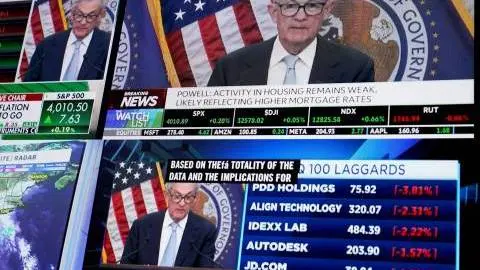SNB stands firm in the face of market turbulence with 50bp rate hike
Despite the events related to Credit Suisse, the Swiss National Bank (SNB) has not flinched and decided to raise its interest rate by 50 basis points to 1.5%
Inflation is too high
Given the inflationary environment, this decision was expected. Compared to other developed economies, inflation in Switzerland has been relatively low, reaching a maximum of 3.4%. Nevertheless, the recent upward trend has not been good. After stabilising in the summer of 2022 and falling at the end of last year, inflation has been rising again since the beginning of the year, and faster than expected. In February 2023, headline inflation reached 3.4% and core inflation 2.4%, its highest-ever level. This is well above the SNB's objective of having inflation between 0 and 2%, which justifies the rate hike.
Moreover, the SNB is unique in that it only meets every quarter, which is much less often than the other major central banks. As a result, today marked only the fourth rate hike for the SNB, increasing by a total of 225 basis points, compared to 350bp for the ECB and 500bp for the Fed.
Foreign currency selling
In addition to the interest rate hikes, the SNB says it continues to be active in the foreign exchange market, mainly by selling currencies. After years of buying currencies to limit the appreciation of the Swiss franc, the SNB is now selling foreign currencies to strengthen the Swiss franc and limit imported inflation. The SNB says it sold about 27 billion Swiss francs worth of foreign currency in the fourth quarter of 2022, and it plans to continue doing so in the coming months. Its currency sales are therefore the second instrument of the SNB's monetary policy in its fight against inflation.
No trade off?
The SNB seems to consider that the events linked to Credit Suisse and the threats to financial stability can be managed with other instruments than interest rates, such as liquidity provision. It believes that the decisions taken last weekend "have put a halt to the crisis", so there is nothing to stop it from focusing on inflation again. Like the ECB, the SNB is therefore trying to convince the markets that there is no trade-off between the price stability mandate and the financial stability mandate. If this can be seen as a sign, the exceptional interest from the markets and the press in today's SNB decision probably shows that not everyone is (yet) convinced.
In our view, the two mandates can indeed be managed with different instruments, but only to a certain extent. Furthermore, there is little doubt that fears about financial stability will have an impact on the availability of credit and thus on the economic situation and the inflation environment in the coming months, which will ultimately influence the path of interest rates.
Higher inflation forecasts
The SNB's inflation forecast was revised upwards in March. It now expects average inflation to be 2.6% in 2023 (compared to the December forecast of 2.4%) and 2.0% in 2024 and 2025 (compared to the December forecast of 1.8% for 2024). Inflation is thus expected to be 2% or more over the entire forecast horizon. Moreover, the SNB expects inflation to rise to 2.1% by the end of 2025, a figure higher than its target. Its forecast sends a rather hawkish signal, suggesting that further rate hikes are in store for the SNB. It says “it cannot be ruled out that additional rises in the SNB policy rate will be necessary to ensure price stability over the medium term".
We believe that a further rate hike is likely in June, but given the economic slowdown, which is likely to be exacerbated by concerns about the banking system, this hike is likely to be limited to 25bp to 1.75% and will probably be the last. After that, the interest rate is likely to remain at this level for a long period.
FX: Franc gains likely to emerge versus the dollar
The Swiss franc rose after the SNB hike, with EUR/CHF briefly touching 0.9940 before bouncing back to the 0.9970 level at the time of writing. As highlighted above, the SNB actively favours a stronger CHF to limit imported inflation, but the ECB-SNB policy differential and an improvement in European sentiment are tilting the bias towards a stronger EUR/CHF at the moment, where a stabilisation above parity seems likely in light of recent developments. The channel where we could see the SNB hawkishness play in favour of CHF is probably through USD/CHF, where we may see a break below the 0.9080 early-February lows, also aided by the generalised USD weakness.
This publication has been prepared by ING solely for information purposes irrespective of a particular user's means, financial situation or investment objectives. The information does not constitute investment recommendation, and nor is it investment, legal or tax advice or an offer or solicitation to purchase or sell any financial instrument. Read more
Download
Download snap
23 March 2023
A week that shook the markets… again This bundle contains 7 Articles